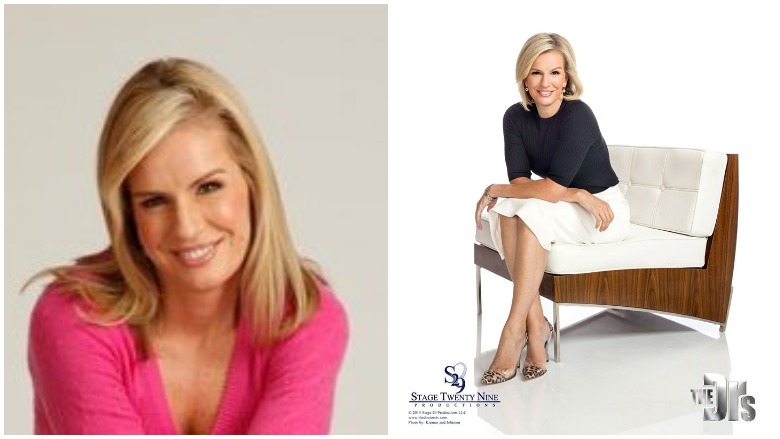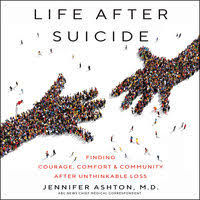
Facebook Dr. Jennifer Ashton
Dr. Jennifer Ashton is a medical doctor and a medical correspondent for ABC News and Good Morning, America. She is sharing her expertise with the nation about the coronavirus as outbreak fears surge.
The latest update of the outbreak from the CDC said that for most Americans, who are unlikely to be exposed to the virus, the immediate health risk is low. Ashton is appearing on ABC 20/20 for its episode on the coronavirus, “Outbreak: What You Need to Know.” The episode airs at 9 p.m. EST Friday, March 6.
Ashton has had recent tragedy in her private life. Dr. Jen’s ex-husband, Robert Ashton, died by suicide two weeks after their divorce was finalized on Feb. 11, 2017.
Here’s what you need to know:
1. Dr. Jen Broke Down Myths About the Coronavirus on Good Morning America & Plans to Answer Questions on 20/20
Dr. Jen Ashton is using her platform during the public fear over the coronavirus to break down some myths about the disease, caused by COVID-19. Read the latest update on the outbreak from the CDC here.
She said the flu mimics symptoms of the coronavirus, with non-specific symptoms like fever, cough, shortness of breath and fatigue.
“We have to remember, we are still in the middle of flu season, so common things occur commonly. If you get any of those symptoms right now, it’s still more likely that you have influenza than coronavirus,” she said on the show.
The flu vaccine won’t prevent a person from getting the coronavirus. There is no evidence that warm weather will stop the spread globally. You can watch her full interview on Good Morning America here.
The CDC assessment published March 5, 2020 said:
For most of the American public, who are unlikely to be exposed to this virus at this time, the immediate health risk from COVID-19 is considered low.
People in communities where ongoing community spread with the virus that causes COVID-19 has been reported are at elevated, though still relatively low risk of exposure.
Healthcare workers caring for patients with COVID-19 are at elevated risk of exposure.
Close contacts of persons with COVID-19 also are at elevated risk of exposure.
Travelers returning from affected international locations where community spread is occurring also are at elevated risk of exposure.
The CDC went on to say that the problem may get worse. “What may happen,” the CDC wrote, is:
More cases of COVID-19 are likely to be identified in the coming days, including more cases in the United States. It’s also likely that person-to-person spread will continue to occur, including in communities in the United States. It’s likely that at some point, widespread transmission of COVID-19 in the United States will occur.
Widespread transmission of COVID-19 would translate into large numbers of people needing medical care at the same time. Schools, childcare centers, workplaces, and other places for mass gatherings may experience more absenteeism. Public health and healthcare systems may become overloaded, with elevated rates of hospitalizations and deaths. Other critical infrastructure, such as law enforcement, emergency medical services, and transportation industry may also be affected. Health care providers and hospitals may be overwhelmed. At this time, there is no vaccine to protect against COVID-19 and no medications approved to treat it. Nonpharmaceutical interventions would be the most important response strategy.
2. Dr. Jennifer Ashton Said the Novel Coronavirus Is an Unknown that Must Be Taken Seriously
Dr. Jennifer Ashton said on Good Morning America that many things about the novel coronavirus remain unknown since it is a new disease. But because of the unknowns, it is something that should be taken seriously, she said. Some steps, though, are taken without evidence that they are helpful. She said there is no evidence of how long the virus lasts, responding to a question about disinfecting packages from China.
“There’s a lot of panic and hysteria and extreme steps being taken, and right now there is zero evidence that it can be passed on money, passed on packages, mail at this time,” she said during an interview on Good Morning America.
There is also no evidence that “mega-dosing” on vitamins will stop a person from getting coronavirus. But she said taking healthy steps in everyday life can decrease risks.
“Get enough sleep. Exercise actually has been associated with lower risks even of getting the common cold. If you smoke, stop, because that lowers your immune system and makes you more susceptible as well,” she said.
When asked whether mass hysteria is a mismatched reaction compared to the threat, she said so little is known that precautions should be taken and preparations should be made.
“This is an unknown situation. We have to take it seriously,” she said. “Just because the majority of cases are mild doesn’t mean it won’t be severe or deadly for a certain percentage of people, and it’s an unknown so we have to take it seriously,” she said.
3. Dr. Jennifer Ashton Is a Gynecologist Who Refers to Herself as ‘Your BFF Gyno’
Dr. Jennifer Ashton is a Ob-Gyn who attempts to break down the barriers of uncomfortable conversations. She is also a women’s health specialist and obesity specialist, according to her Facebook page.
“Retiring stiff paper gowns and unrelatable medical advice, Dr. Jennifer Ashton, a Board-certified Ob-Gyn, author and TV medical correspondent, breaks the barrier between doctor and patient,” her website said. “Affectionately referred to as your all-in-one ‘BFF’/Ob-Gyn, Dr. Jennifer Ashton marries an unparalleled medical background with an accessible ‘girl’s-girl’ attitude. Though Dr. Ashton can easily speak to the latest beauty and fashion trends, this Ivy League graduate means business when it comes to women’s health.”
She opened her private practice, Hygeia Gynecology, in Englewood, New Jersey in 2008. She named her practice after the Greek goddess of health, healing and cleanliness. It is known as the first eco-friendly medical practice in Bergen County, New Jersey.
“Resembling a spa more than a doctor’s office, patients are immediately escorted from a Zen-like reception area to examination rooms where they are surrounded by luxurious materials and high-tech equipment,” her website says. “Instead of scratchy and uncomfortable paper gowns, patients are enveloped in plush Kashwére robes, much like the ones you’ll find at a hotel. Patients are physically and metaphorically ‘wrapped in comfort,’ explains Dr. Ashton.”
4. Dr. Jen Was Born into a Family of 6 Physicians & 1 Nurse & Has 2 Children
Dr. Jennifer Ashton was born into a family of doctors. In fact, there were six physicians and one nurse in her family, according to her online biography.
“From the onset, you might wonder how Dr. Ashton does it,” her website says. “Hailing from a family of 6 physicians and 1 nurse, this mother of two possesses a uniquely well-rounded understanding of the human body. Leading by example, Dr. Ashton not only ‘talks the talk,’ but ‘walks the walk.’ When she’s not in the office, she can be found training for triathlons or following her very own Five-Day/Two- Day Eating Plan, or trying out the latest fitness craze. Dr. Ashton demonstrates first-hand how to embrace and feel empowered at every stage of womanhood. Dr. Ashton is relatable in everything she does.”
She has two children, Chloe and Alex. They were teenagers when Jennifer Ashton and her husband, Robert, divorced. Two weeks after their divorce was finalized, he committed suicide. She opened up about the suicide following the death of Kate Spade.
5. Jennifer Ashton’s Ex-Husband, Robert, Died by Suicide 2 Weeks After Their Divorce Was Finalized
Jennifer Ashton has a tragic recent history. She and her ex-husband, Robert Ashton, were divorced when their children, Alex and Chloe, were teenagers. Two weeks after their divorce was finalized, he committed suicide by jumping from the George Washington bridge on February 11, 2017.
“As a doctor, it is much easier for me to be the one helping than it is to be the one asking for help,” she wrote in a piece published by Good Morning America. “I much prefer being the one giving the healing advice than one receiving it. Also, despite my very public role in national media, I am actually a very private person, especially when it comes to something that I could associate with weakness, vulnerability, imperfection and failure. So when it came to my own healing from the suicide death of my ex-husband, and the father of my two teenage children, the thought of speaking about my pain and grief publicly was terrifying.”
She went on to say that even though she knew, rationally, that suicide cannot be blamed on a survivor of suicide, she felt otherwise. She dreaded speaking about it and felt that it made her look weak and vulnerable.
“What got me to do it? My kids,” she wrote. “Chloe and Alex told me I had a responsibility to use my platform and my voice to speak to and for the millions of people who were going through the pain of losing a loved one to suicide. It’s estimated that for every death by suicide in the U.S., 135 people are directly affected. This translates to over 6 million people a year. That’s more than 20 million people in just the last four years alone.”
Following the highly publicized suicide of Kate Spade, Jennifer Ashton decided to open up about the suicide. She later wrote a book, “Life After Suicide.”
READ NEXT: Amy Fisher Today: Where Is She Now in 2019?”

